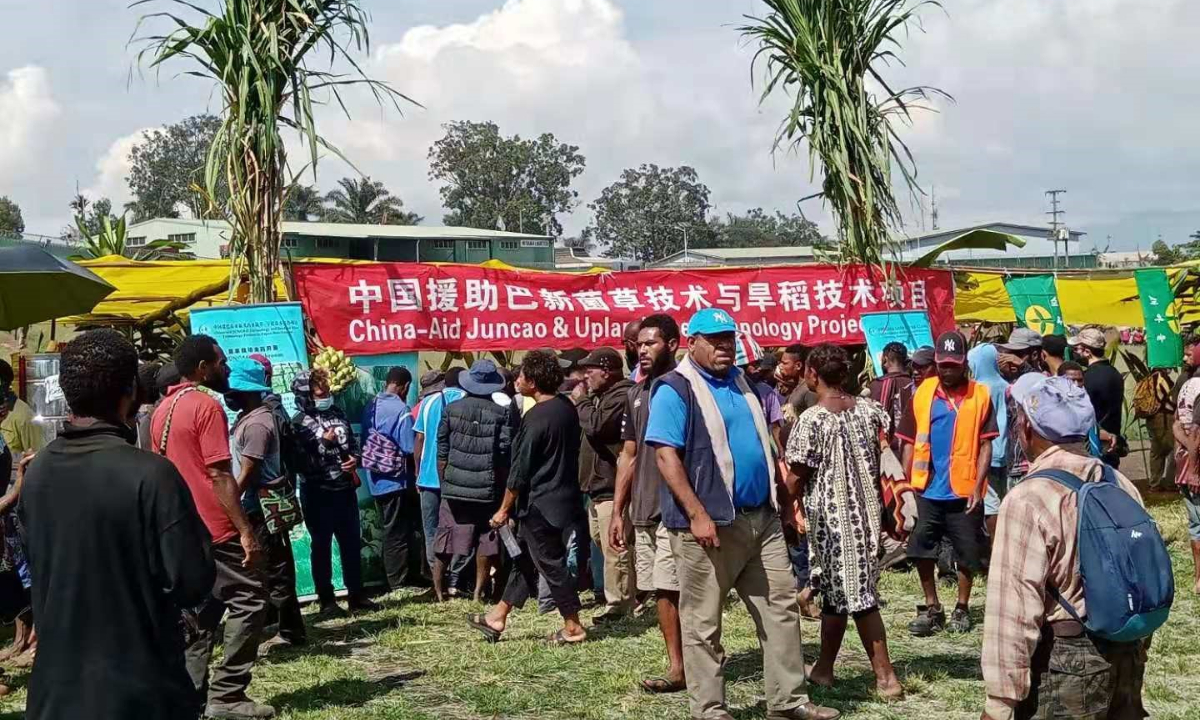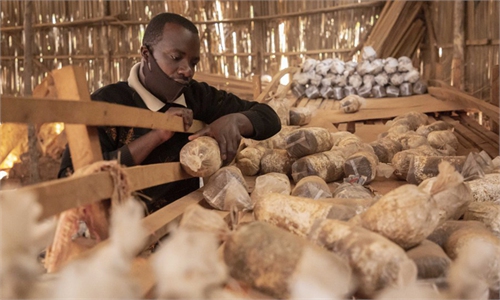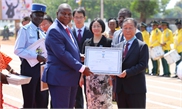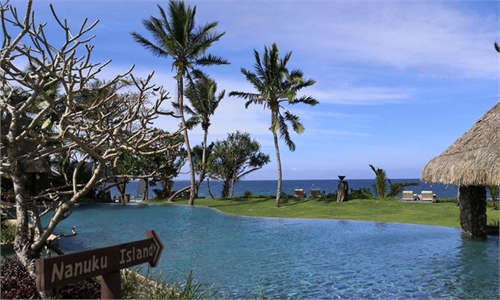
The China-aid Juncao and upland rice technology project in Papua New Guinea Photo: Ministry of Commerce of China
Juncao, the famed Chinese "magic grass" endorsed by President Xi Jinping, has over the years become a viable income booster for Papua New Guinea (PNG), typifying China's sharing of key technologies through its partnerships with South Pacific countries, whereas the West is obsessed with peddling financial support, according to an expert of Juncao technology.
Juncao technology has been a focus of attention during Chinese State Councilor and Foreign Minister Wang Yi's high-profile trip to the South Pacific. The green technology has helped lift tens of thousands of locals out of poverty in PNG and Fiji, according to a series of documents recently revealed by China's foreign ministry, addressing the fruitful partnerships between Chinese provinces and South Pacific countries.
"Assistance from Western countries to PNG usually provides directly financial support to local NGOs or farmers but lack of core technology sharing," Lin Dongmei, deputy director of the China National Engineering Research Center of Juncao Technology under the Fujian Agriculture and Forestry University, told the Global Times on Wednesday.
"Assistance brought by China to PNG is aimed at sharing seeds, technologies, industrial experience, and talent development, which can fundamentally solve local issues," Lin said, bullish on the Juncao tie-up that has fostered broader China-PNG cooperation in agriculture and biomass energy.
Lin's research center is in charge of Juncao cooperation between China and PNG, an initiative known for receiving an endorsement from Xi and has over the years been acclaimed as a role model for China's green push that resonates among a rising number of countries and regions.
The Juncao program was initiated by Xi, who was then governor of East China's Fujian Province in 2001. Juncao, which literally means "mushroom" and "grass," can be used to grow edible and medicinal mushrooms as a substrate substitute for timber. In 2018, China and PNG signed the Juncao and uplandrice tech cooperation agreement during Xi's visit to the South Pacific nation.
"Since the cooperation program kicked off in August 2019, over 1,300 local apprentices in PNG have been trained targeting the techniques of planting Juncao and rice," Lin said. She stated that their training classes were set to increase income of local people by teaching them how to use Juncao technology to grow mushrooms.
Lin said that 80 percent of apprentices in a training class held in PNG were single mothers, aged between 17 and 65. "Some of the trainees were mothers of four children who were struggling in life," Lin noted.
Juncao techniques can be almost mastered by apprentices after a three-day-training and knowledge sharing program. "One of local mushroom growers expand her mushroom output via Juncao technology by 20 to 30 times than planting cabbage, with lower investment and land utility," said Lin.
The research center has also pushed for 1,200 hectares of upland rice planting area in PNG with the participation of more than 6,000 local households, ensuring local grain supplies despite the COVID-19 pandemic.
The PNG government has held over 30 promotion conferences on Juncao and upland rice technologies across the country since the cooperation started.
"In the future, Chinese National Juncao research center is willing to support a regional demonstration center in Fiji and other national demonstration bases for island countries in South Pacific region in order to build a resilient and diversified food supply system, so as to reduce the dependency on foreign resources," said Lin.



